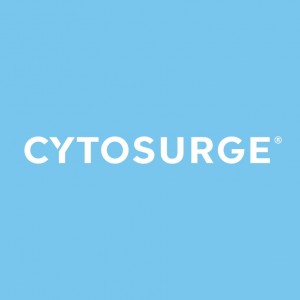- Wednesday, May 29, 2024 @ 9:00 am
Cytosurge's CellEDIT workflow, published in Biotechnology Journal, introduces an innovative method for gene editing in CHO cells using FluidFM-mediated intranuclear CRISPR/Cas9 delivery. This approach enhances precision and efficiency, generating monoclonal triple knockout CHO-K1 cell lines by targeting multiple genes simultaneously. The workflow preserves cell functionality post-editing and shows promise for biopharmaceutical applications. Cytosurge aims to advance research with this novel technique for gene editing and cellular engineering.
- CellEDIT Service represents a novel workflow leveraging FluidFM-mediated intranuclear nanoinjection of CRISPR/Cas9 components into single cells.
- Control of the amount and stoichiometry of RNP complexes could boost efficiency, particularly when targeting multiple loci simultaneously.
- Demonstrated preservation of general cell characteristics and functionality post-editing in both single and multiple KO clones in CHO-K1 cells.
Cytosurge AG, a biotech company pioneering innovative single-cell biopsies and cell engineering solutions, today announced the open-access publication of its CellEDIT workflow in the peer-reviewed journal Biotechnology Journal. Titled “Accelerated generation of gene-engineered monoclonal CHO cell lines using FluidFM nanoinjection and CRISPR/Cas9”, the manuscript introduces CellEDIT as a novel approach to cell engineering that leverages intranuclear delivery of CRISPR components to single cells through Cytosurge's proprietary FluidFM OMNIUM Platform technology.
The study focuses on Chinese hamster ovary (CHO) cells, widely used in biopharmaceutical production, particularly for monoclonal antibody manufacturing. However, the non-human glycoprofile of CHO-produced antibodies can affect product quality and therapeutic efficacy, posing challenges to traditional glycoengineering approaches due to their time-consuming and labor-intensive nature.
In this proof-of-concept study, Cytosurge's CellEDIT workflow was utilized to engineer CHO cells by delivering CRISPR components simultaneously targeting three genes (BAX, DHFR, and FUT8) directly into single-cell nuclei, resulting in the generation of monoclonal triple knockout CHO-K1 cell lines. Notably, nanoinjection of RNP complexes with FluidFM offered exceptional control over cargo delivery, likely reducing off-target editing and enhancing editing efficiency compared to standard methods.
“In the world of cell engineering, precision is paramount. Our CellEDIT technology, validated in this peer-reviewed publication, offers meticulous control over gene targeting,” stated Tobias A. Beyer, PhD, Chief Scientific Officer at Cytosurge and co-author of the publication. “Our CellEDIT Service is already assisting life sciences and biology researchers worldwide by providing high-quality gene editing in cellular models, addressing the growing demand for reliable manufacturing of cell lines.”
CellEDIT demonstrated to facilitate the development of both single and multiple KO clones in CHO-K1 cells. Subsequent analyses confirmed targeted genetic disruption and altered protein expression in the knockout CHO-K1 clones, which exhibited sustained gene editing across passages.
“We are proud of this translational research work between our academic lab and Cytosurge as an industry partner. I believe that the blended innovation of intranuclear nanoinjection and CHO cell genetic engineering will pave the way for the rapid generation of advanced biologics,” added Justin S. Antony, PhD, Junior Group Leader at the University Children’s Hospital of Tübingen and first author of the paper.
“I extend my gratitude to the entire team and the Mezger Lab from the University Children's Hospital Tübingen who contributed to this project,” commented Pascal Behr, PhD, Chief Executive Officer at Cytosurge. “Now, we aim to continue applying the CellEDIT workflow to serve researchers and organizations to generate cellular models in fundamental research, disease modeling, and drug discovery to advance scientific research.”
“Our collaboration with Cytosurge has yielded exciting results in the realm of cellular engineering,” added Markus Mezger, MD, Group Leader at the University Children’s Hospital of Tübingen and Lead author of the paper.
Finally, the study demonstrated the compatibility of engineered CHO cells with industry-recommended chemically defined medium and equivalent transgene expression to parental clones.
